•Menu
•Tin đọc nhiều
-
 Nghệ sĩ Phương Cẩm Ngọc, Nguyễn Văn Khởi đoạt giải nhất cuộc thi “Tài năng diễn viên Cải lương toàn quốc 2023”
Nghệ sĩ Phương Cẩm Ngọc, Nguyễn Văn Khởi đoạt giải nhất cuộc thi “Tài năng diễn viên Cải lương toàn quốc 2023”
-
 Nghệ sĩ Minh Cảnh tuổi U90, xúc động nói trước mộ vợ: "Anh giờ đây không hề tiếc nuối, ham muốn điều gì nữa"
Nghệ sĩ Minh Cảnh tuổi U90, xúc động nói trước mộ vợ: "Anh giờ đây không hề tiếc nuối, ham muốn điều gì nữa"
-
 Cặp Đôi Đào Kép Chánh của Kim Chung 2 Minh Cảnh & Diệu Hiền Tái Ngộ Sau Gần 60 Năm
Cặp Đôi Đào Kép Chánh của Kim Chung 2 Minh Cảnh & Diệu Hiền Tái Ngộ Sau Gần 60 Năm
-
 Nghệ sĩ Thanh Hằng, Trọng Phúc, Phượng Loan tham gia Ban huấn luyện "Chuông vàng vọng cổ" lần thứ 18 - năm 2023
Nghệ sĩ Thanh Hằng, Trọng Phúc, Phượng Loan tham gia Ban huấn luyện "Chuông vàng vọng cổ" lần thứ 18 - năm 2023
-
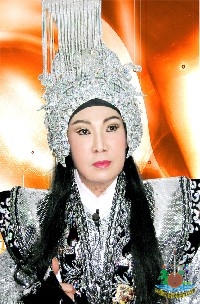 Tòa án thụ lý vụ kiện tranh chấp tài sản của nghệ sĩ Vũ Linh
Tòa án thụ lý vụ kiện tranh chấp tài sản của nghệ sĩ Vũ Linh
-
 Hành trình 20 năm - Một trang web để đời
Hành trình 20 năm - Một trang web để đời
-
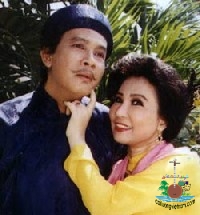 Nam nghệ sĩ Thanh Điền đã trở thành youtuber chuyên nghiệp?
Nam nghệ sĩ Thanh Điền đã trở thành youtuber chuyên nghiệp?
-
 Hoài Minh - Từ “trang giấy trắng” đến Chung kết “Chuông vàng vọng cổ” 2023
Hoài Minh - Từ “trang giấy trắng” đến Chung kết “Chuông vàng vọng cổ” 2023
-
 Ngôi sao của vở cải lương kinh điển 'Bên cầu dệt lụa' đi xe ôm, bán bảo hiểm
Ngôi sao của vở cải lương kinh điển 'Bên cầu dệt lụa' đi xe ôm, bán bảo hiểm
-
 Vở cải lương kinh điển Khách sạn hào hoa quảng bá cho giải Trần Hữu Trang
Vở cải lương kinh điển Khách sạn hào hoa quảng bá cho giải Trần Hữu Trang
•Tin ngẫu nhiên
-
 GIAO LƯU VỚI HỘI DƯỠNG LÃO NGHỆ SĨ: ẤM ÁP TÌNH NGHỆ SĨ & KHÁN GIẢ
GIAO LƯU VỚI HỘI DƯỠNG LÃO NGHỆ SĨ: ẤM ÁP TÌNH NGHỆ SĨ & KHÁN GIẢ
-
 Nguyễn Nhật Ánh sững sờ vì quá nhiều giải thưởng
Nguyễn Nhật Ánh sững sờ vì quá nhiều giải thưởng
-
 Diễn viên Nguyễn Hoàng: Ngày cuối đời vẫn nằm đó chờ vợ, đợi con
Diễn viên Nguyễn Hoàng: Ngày cuối đời vẫn nằm đó chờ vợ, đợi con
-
 Golden Phelps ends individual career in style
Golden Phelps ends individual career in style
-
 Chuyện chưa biết về dây đờn độc nhất dành riêng cho NSƯT Mỹ Châu
Chuyện chưa biết về dây đờn độc nhất dành riêng cho NSƯT Mỹ Châu
-
 NS Vũ Luân xúc động gặp lại thầy Bạch Long
NS Vũ Luân xúc động gặp lại thầy Bạch Long
-
 Bolero- từ bình dân hóa đến “tầm thường hóa”
Bolero- từ bình dân hóa đến “tầm thường hóa”
-
 Năm Mươi Năm nhìn lại : Nguyên do nào, ông Bầu Long, (Bắc Di Cư) có thể lập một đại công ty Kim Chung?
Năm Mươi Năm nhìn lại : Nguyên do nào, ông Bầu Long, (Bắc Di Cư) có thể lập một đại công ty Kim Chung?
-
 Phương pháp chữa bệnh lạ cho ns Minh Cảnh
Phương pháp chữa bệnh lạ cho ns Minh Cảnh
-
 Mõ báo động bắt cướp, Triệu Tử Long núp dưới ao bèo…
Mõ báo động bắt cướp, Triệu Tử Long núp dưới ao bèo…
•Thống kê truy cập
![]() Đang truy cập :
218
Đang truy cập :
218
![]() Hôm nay :
30771
Hôm nay :
30771
![]() Tháng hiện tại
: 99489
Tháng hiện tại
: 99489
![]() Tổng lượt truy cập : 79076604
Tổng lượt truy cập : 79076604
 »
Tin Tức
»
English
»
Tin Tức
»
English

MC Đức Tiến và Hoa hậu...
Sao Việt đồng loạt sốc, tiếc thương trước sự ra đi đột ngột của siêu mẫu, diễn viên Đức Tiến ở tuổi 44.
The magic of the Vong Co song
Đăng lúc: Chủ nhật - 07/10/2012 20:28 - Đã xem: 6347
The magic of the Vong Co song
Da Co Hoai Lang song has its original from a faithful love
The original of Vong co song named Da Co Hoai Lang by musician Cao Van Lau. The birth of this song was associated with a faithful love. Musician Cao Van Lau (ie Sau Lau) was born in 1892 in Cay Cui ditch, Thuan Le village, Thanh Hoi Ha district, Tan An, Gia Dinh province, now is My Thuan, Tan An, Long An. At the age of 6 , the boy's family Sau Lau together with 19 other families came to settle in Gia Hoi, Bac Lieu. There, the boy Sau Lau was taught to play music by musician Hai Nhi, a famous musician of folk music throughout the six provinces of Southern States at that time. At the age of 21, the young man Sau Lau had a marriage to Ms. Tran Thi Tan by a matchmaker. Although the couple lived in poverty, they loved each other very much. How ironical the fate was, during eight years of being husband and wife they still did not have any children. According to the traditional feudal " married for three years without having a child, the woman can not be counted as a wife”, his mother forced him to devorce his wife. If he had to take after his mother because of the harsh sentence " three years without having a child " the young man Sau Lau also understood the statement “ being a couple in one day means hundred years of good grace”
Therefore, the long days and nights missed the gentle wife, and wished to be reunited, in his mind, he thought that his wife would also suffer poignant longing like him. Quite appreciating rather his wife at young age of twenty forced away from her husband, suffering from a grim life, then every night waiting for her husband languished as the young woman looks forward to the soldier in the front thousands of miles away, from that scene in love, the husband Sau Lau wrote a song called "Hoai Lang" (looking forward to husband), as to the faithful wife's behalf. After that Mr. Bay Kien suggested adding the word " Da co" (in the night listening to the drums). And so the song "Da Co Hoai Lang" (Night listening to the drums missing her husband) was born. His warm and sincere heart got the sympathy of his wife’s mother, she silently helped two people secretly meet. God as those who have the heart, after silent meetings, his wife was pregnant. Sau Lau’s family delighted to welcome back his wife. The couple reunited in joy. Then she gave birth to his first son of seven children, five boys and two girls. Mr. Sau Lau passed away on August 13, 1976 in Bac Lieu. Tombs of the couple were placed next to each other as a faithful testimony of the love attachment between a poor couple to lead to the birth of a timeless version of a song in the cai luong stage in the South.
An individual’s work became collective creation
"Da Co Hoai Lang" was composed by musician Sau Lau in 1919 with 22 sentences in double beats. According to composer Vien Chau, famous musician Bay Ba, Mr. Sau Lau omitted the last two sentences to make the song in 20 sentences in double beats. From rhythm of original double beats, "Da Co Hoai Lang" has grown over time to meet needs of creativity and enjoyment of the audiences. According to professor Tran Van Khe, in 1922, Mr. Pham Cong Binh ordered a drama named "Toi Doc Phu Nhan Tam" which includes the song "Da Co Hoai Lang" with double beats. In 1925, Mr. Huynh Thu Trung, ie Tu Choi, wrote the lyrics for the song "Vong co" with rhythm of 4 beats named "The tern’s calling dew" which concludes: "The tern’s calling dew in the Northern Sea, the swallow’s crying in the Southern Sky". By 1935, Mr. Lu Hoa Nghia, ie artor Nam Nghia, had sung "Hearing the pogoda’s bell" in the Vong co rhythm of 8 beats. In 1938, musician Vinh Bao played music for Ms. Nam Can Tho to sing a Vong co song in 16 beats. Beka recording disk of Vong co song in 8 beats and 16 beats. Around the early 50's of last century, the number-one famous singer Ut Tra On started singing a Vong co song in 32 beats that majority of opera artists today still sing. Vong co songs with 64 and 128 beats have begun to develop, but not very popular. There are still a lot of different points among researchers of classic music in the details about the date, name of the musicians, artists to contribute to the development of a Vong co song from double beats to 128 beats. However, one certain thing is "Da Co Hoai Lang" by Mr. Sau Lau having been constantly growing over the years, especially so many musicians and artists have contributed to shaping a perfect Vong co song with 32 beats for Cai luong lovers to enjoy today.
The king song of the Cai luong stage
Vong co song is considered "the king song" of the Cai luong stage. There are many reasons to explain to the "position" as followings: All Vong co song are considered the primary measure to evaluate artists by audiences, once artists want to be famous and successful, they must practise singing Vong co songs really smoothly and beautifully. It's like the external appearance of a human being, no matter how mood and heart are, the nice appearance is an advantage to get love from others. For artists, if he can attract audiences by singing a Vong co song smoothly, the artist will easily win the audiences’ hearts. If the singing of a Vong co song can be accepted by the audience, the artist will get a license of laissez-type priority to continue their career. So that, all the main and professional artists are required to sing Vong co songs beautifully. And almost of the artists are firstly remembered by the audience with their unique voice of singing Vong co songs.
When coming to a live show of Cai luong, on the stage, artists sing and dance so many Cai luong songs, but strangely, as an unwritten rule, once the artists on stage sing a Vong co song, the audience immediately become silent to listen to every word, every sentence in portamento until the artists raise the voice to a phase of tone in the Vong co song, the applause are burst out in the hall. While other Cai luong songs are also sung really smoothly and beautifully, there is no favor for such an unwritten rule. Another strength of the Vong co song to help it sit firmly on the throne is its popularity in the society to Cai luong lovers as well as people interested in modern music. In today's modern society, a time when every day by means of media, people have heard of the so-called "Cai luong going downhill", "recession of Cai luong" ... generally wording to the weakness of Cai luong among many other modern forms of entertainment. And yet, though loving Cai luong or not, there are not many people in the South of Vietnam when hearing the word "Vong co" not knowing what it is. When opera artists take part in the shows of modern music programs, being seen by the audience on the stage, they are asked to sing neither “Nam ai” nor “Truong tuong tu”, but mostly and only a Vong co song.
Thanks to Vong co songs that many singing voices have become immortal in the audience’s hearts: Ut Tra, Huu Phuoc, Thanh Duoc, Thanh Sang, Minh Canh, Minh Vuong, Minh Phung, Tan Tai, Ha Buu Tan, Ut Bach Lan, Thanh Huong, Ngoc Giau, Le Thuy, Bach Tuyet, Phuong Lien, Mong Tuyen, My Chau, Thanh Kim Hue ... and also to know many other immortal voices. But strangely, in all that of famous voices, no voice is similar to any others, each one has an unique feature that just hearing then the audience can immediately identify without any confusions.
Although many researchers have tried to put artists in a particular school of singing Vong co, but the division is extremely relative because of the diversity of voices among the artists by the ways they sing ... Even for the artists themselves, each Vong co song, depending on the content and mood, they also have different ways of portamento. What is known that six verses of Vong co song contain all styles of singing. For example, up to now, no artists can follow the way artist Ut Tra On shaped and split the song rhythm, or the way of tuning down at the end of verse 5 and 6 by Ut Bach Lan is the only one, or to stop at the second verse by artist Mong Tuyen is also unique in classic music in the South. Because of this diversity, the Vong co song with only 6 verses has been sung from the past until now with thousands of songs, each time you hear, you have new feelings. When a composer writes a new Vong co song, the new here is just the lyrics, but music is still the same without changing. However, with new lyrics, the audience do not get bored with 6 verses of music, and the new lyrics make the Vong co song become totally new. Moreover, each artist has his own different way of singing a Vong co song, so it seems always new
Vong co is not only sad
Audiences come to opera because there is a minimized life. Cai luong songs are various to express a variety of passionate and sexuality of human beings. There are often 20 origin versions of Cai luong songs including: - Three of South: Nam Xuan, Nam Ai + Nam AI Lop Mai, Dao Ngu Cung + Song Cuoc; - Six of North: Luu Thuy, Xuan Tinh, Phu Luc, Binh Ban, Tay Thi, Co Ban; - Seven of Ceremony: Xang Xe, Ngu Doi Thuong, Ngu Doi Ha, Long Dang, Long Ngam, Van Gia, Tieu Khuc; - Four of resentment: Tu Dai Oan, Giang Nam, Phung Cau Hoang, Phung Hoang Cau. - Four of resentment of women: Van Thien Tuong, Binh Sa Lac Nhan, Thanh Da De Quyen, Xuan Nu. This twenty versions are divided into four categories according to four seasons (Spring, Summer, Fall, Winter) and four directions (East, West , South, North), to be used to express different levels of feelings. For example, Xuan Tinh is used to express happy and boisterous feelings, Xang Xe tune is used to express the epic and majesty, Phung Hoang, Tu Dai Oan or Nam Ai are used to express sadness and depression, Nam Xuan is used to express pleasure, or Van Thien Tuong is used to express sentiments of bad mood…
What about Vong co song? Vong co can express all of those feelings and the first is sadness, misery and unhappiness."Da Co Hoai Lang" is a sad and numbness song, then, of course, today a Vong co song is flowing with melancholic features. There have been so many Vong co songs telling sad stories fluttering Cai luong lovers’ hearts, they are Tinh anh ban chieu - Ut Tra, Tieng ve sau - Ut Bach Lan, Co gai ban den hoa giay (the girl selling paper flower lamps) - Thanh Huong, Bach Thu Ha - Le Thuy, Bong O Moi - Tan Tai, Hon Vong Phu - My Chau, Tinh la day oan - Huu Phuoc + Thanh Nga, Tinh mau tu (Love between mother and son) - Ngoc Giau ...
However, all Vong co songs are not only sad, but also can make the audience laugh out loud. How a Vong co lover can forget the unique voice of the king of comedian Van Huong with series of lifetime songs such as: Vo toi noi tieng tay (My wife speaking foreign languages), Cho muc dau cao (Black dog fighting fox), La so tao quan (Tao quan’s reports), ... or the voice of comedian Minh to sing “I love my village”, comedian Sa to sing “a magician retired”.
In life, sometimes heroes also have to shed tears because of some thwarted circumstances. These are not sorrowful but heroic tears. It is still the familiar verse of Vong co, but it requires the artists to make audience capture the sorrow with heroic feelings.These Vong co songs of this category are not rare: Nguyen Trai - Ut Tra On, Phan Le Hue - Ut Bach Lan, Han Kinh Kha - Tan Tai, Trong loan Thang Long thanh - Minh Canh, Men ruou Sake - Huu Phuoc...
he soul of a Vong co song
Vong co song is considered a piece of music for most artists to sing freely. For example, for a Vong co song of 6 rhythm 32 sentences, the singer just keep the beat at the end of sentences, while he is completely free to press in portamento of the other parts ... Thanks to the freedom that the artist created his own styles to the make listeners not feel bored. However, as well as cooking a pot of sour soup in the South, arbitrary preferences that can be spicy or sweet and sour, but to taste how a sour soup is, not too much sugar, not too much sourness. The Vong co song is also the same, it's "free" but not "styleless", or even free, it is required to keep the most basic points otherwise it will be no longer a Vong co song.
What are the basic points?
Firstly, Vong co song is a “narrative”, which means telling a story for people to hear. In the story, of course, depending on the time there will be joy, anger, love, hate, sadness, fear, desire. Thus, each Vong co song requires the writer to give it a plot, the artist must use words to convey the content and spirit of the story to the audience.
Secondly, to understand that the main task of the Vong co singer is "to voice", and the main purpose is to satisfy the "listening" to enjoy by listeners. Because of this, people often say, "voicing a Vong co song", but "singing opera”. “To voice” means the artist have to use their voices to express emotional content and tone of the Vong co song to make the listener just hear the voices and feel the levels of sentiment recommended by the composers. Meanwhile, the main feature of Cai luong is "singing", which means to "perform" for the audience to "see", then the words play a supporting role to the performance. In the past, in the theater, when the artists on stage preparing to voice a Vong co verse, lighting system was immediately shut down and the light was only held for the audience to see the artist voicing. In the darkness, the sound of the Vong co verse echo and the listeners focus on sounds, words suddenly become formal and beautiful. Then we know how the predecessors attached importance to "listen" to Vong co voicing. Vong co is "simple" because it comes from a rural location, because it's like the country music in the South. That's why it is loved so much. Therefore, it is required to to show the true soul of southern music as "Truthfulness with beautiful scenery". When voicing a Vong co song, the artist have to sing in a simple way with true love by using his own voice of beat and rhythm to make the songs fresh and beautiful like the mother lull gently, sweet and smoothly to bring her children into a sound sleep. "
Source: RFI - cailuongvietnam.com
Translated by onlyyou
Nguồn tin: cailuongvietnam.com
Những tin mới hơn
- Vietnam wins six medals at Int’l Circus Festival (25/11/2012)
- Vietnamese model among top ten at ‘Mr. World 2013’ contest (28/11/2012)
- Vietnam Idol judge crowned Best Asian Singer at 'East Asian Grammys’ (07/12/2012)
- Hung Kings’ worship ritual recognised as cultural heritage (18/12/2012)
- Vietnamese films viewed in well-known US universities (25/11/2012)
- Vietnam finishes first jade statute of Buddhist king (18/11/2012)
- Economy, poor service keep tourists away from Vietnam (03/11/2012)
- Lord of the Rings with poetry (08/11/2012)
- Vietnamese short films being shown at US universities (13/11/2012)
- ‘Cai Luong Festival 2012’ to take place in Dong Nai Province/ One-Pillar Pagoda in Hanoi named in Asia Book of Records (21/10/2012)
Những tin cũ hơn
- Saigon to celebrate lantern festival at tallest tower (30/09/2012)
- Trieu Trung Kien (22/09/2012)
- Three Beautiful Roses – Three Talented Singers/Actresses, each in her own way… (12/09/2012)
- An American admirer of Vietnamese music (03/09/2012)
- Veteran drama actress Kim Cuong releases picture book (28/08/2012)
- Brave new world (23/08/2012)
- Suspension lifted for Vietnam singers who skipped diplomatic show (21/08/2012)
- The unfaithfull lover (16/08/2012)
- Vietnamese photographer wins international contest (09/08/2012)
- Golden Phelps ends individual career in style (04/08/2012)
Mã an toàn: ![]()
•CHUYỂN ĐẾN WEBSITE...
•Tin mới nhất
-
 MC Đức Tiến và Hoa hậu...
MC Đức Tiến và Hoa hậu...
-
 Nghệ sĩ Nhã Thy: Tâm huyết với sân khấu cải lương
Nghệ sĩ Nhã Thy: Tâm huyết với sân khấu cải lương
-
 Nghệ sĩ Linh Cường, từng chặng đường không quên
Nghệ sĩ Linh Cường, từng chặng đường không quên
-
 NSƯT Kim Tiểu Long với ngày 1-5 nhiều ý nghĩa
NSƯT Kim Tiểu Long với ngày 1-5 nhiều ý nghĩa
-
 Lan tỏa nét độc đáo của đờn ca tài tử
Lan tỏa nét độc đáo của đờn ca tài tử
-
 Nghệ sĩ Trung Dân xúc động khi được khen thế vai NSND Diệp Lang
Nghệ sĩ Trung Dân xúc động khi được khen thế vai NSND Diệp Lang
-
 Kim Tiểu Long: "Ly hôn" là món quà tôi tặng cho đời mình
Kim Tiểu Long: "Ly hôn" là món quà tôi tặng cho đời mình
-
 Hành trình 20 năm - Một trang web để đời
Hành trình 20 năm - Một trang web để đời
-
 Nghệ Sĩ hài Hồng Vân "thắng án" CEO Nguyễn Phương Hằng ngoạn mục
Nghệ Sĩ hài Hồng Vân "thắng án" CEO Nguyễn Phương Hằng ngoạn mục
-
 Lê Phương mê làm đào chánh, như "nhặt được vàng" với phim "Sáng đèn"
Lê Phương mê làm đào chánh, như "nhặt được vàng" với phim "Sáng đèn"
•Đăng nhập thành viên
- Những Vở Diễn Hay KIỆT TÁC SÂN KHẤU THẾ GIỚI: LÔI VŨ
- Nghệ Sĩ Tâm Sự Ngọc Huyền 'vẫn bị cấm hát tại Việt Nam'
- Đời Thường Nghệ Sĩ Con dâu trẻ của NSUT Thoại Miêu qua đời chưa đầy 2 năm cưới
- Đời Thường Nghệ Sĩ Nghệ sĩ Tú Sương kết hôn với Việt kiều
- Tâm Tư Thành Viên Người trong giới tự nói gì về nghệ sĩ Mỹ Châu ?
- Trong bầu trời nghệ thuật sân khấu cải lương, nghệ sĩ Thành Được mãi là ngôi sao sáng vĩ đại. Ông đã...
- Tôi cũng biết một soạn giả có tên YÊN BA, nhưng tên thật là PHẠM DIỆP PHƯƠNG, là quân y, KBC 7019
- Bài viết khá đầy đủ về cuộc đời của thầy Văn Hải. Có vài lỗi chính tả không nên có
- thag điên nai ma diên cai gi . toan bac chuoc nsut thanh nam . bat chuoc kieu ngu
- Tôi rất mong chờ để được xem cải lương nhưng thật thất vọng.
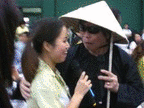
MC Đức Tiến và Hoa hậu...
Sao Việt đồng loạt sốc, tiếc thương trước sự ra đi đột ngột của siêu mẫu, diễn viên Đức Tiến ở tuổi 44.

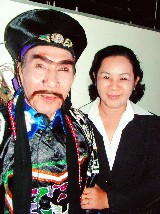

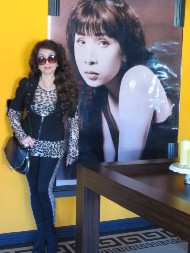
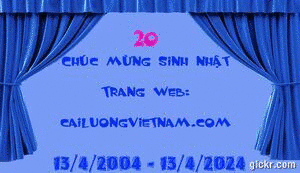





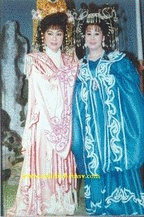

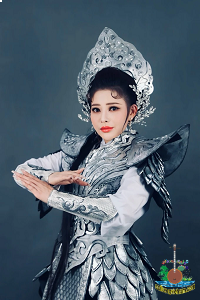

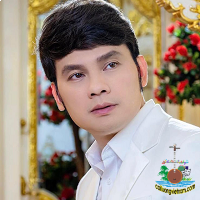
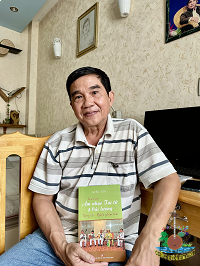
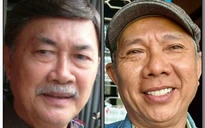

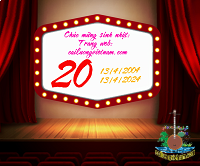

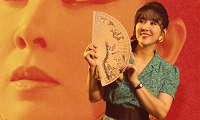

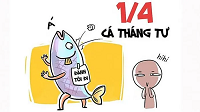
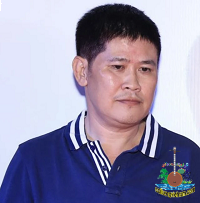












Ý kiến bạn đọc